#shakespeare stuff
Explore tagged Tumblr posts
Text
MALVOLIO: By my life, this is my lady’s hand: these be her very C’s, her U’s, and her T’s, and thus makes she her great P’s. SIR ANDREW: Her C’s, her U’s, and her T’s. Why that?
I hate how clever this joke is.
So Malvolio is reading what he thinks is a love letter from his boss, Olivia, and he thinks he recognizes his her handwriting, her "hand." (Sir Andrew is spying from the bushes.)
But, the fact that he specifically calls out her 'C' 'U' 'n 'T' draws attention to what he is really thinking about.
but BUT, if you look at it phonetically (said out loud in a play) then the line becomes "seize, use, and tease."
Which makes it a handjob joke. "My lady's [literal] hand, these are her very seize, her use, and her tease, and thus she makes her great peace. [orgasm]. And that's what Malvolio in the midst of his big power fantasy is REALLY thinking about.
and then Sir Andrew draws attention to this joke, making it sound like he's never had sex, which of course he hasn't, because his thing is that he's very alone (very probably because he doesn't realize that he's gay.)
that's a three tier pun that's also got character development.
dammit shakespeare
#william shakespeare#shakespeare stuff#shakespeares dick jokes#classic lit#twelfth night#shakespeare#malvolio
436 notes
·
View notes
Text





reorganized my books and these are my favorite shelves :) shelf categories in order are: classic plays & theatre-related nonfiction, modern(ish) plays, classic lit, nonfiction/essays, and 20-21st century literary fiction and poetry
#books#nobody tell me the picture of Dorian gray isn’t a play I am aware. it’s an anthology & all the other pieces r plays by Wilde#also didn’t realize how much theatre scholarship i had acquired#Shakespeare in Bloomsbury is obviously primarily criticism concerning the Bloomsbury group but I thought it was fun to put with all my#Shakespeare stuff#i put ovids metamorphosis with zimmermans just for fun but ill prob put it with classic lit once i have more modern plays to fill out that#shelf
11 notes
·
View notes
Text
This is so, so, so good!

115K notes
·
View notes
Text

You are. My friend
Today you found out that I can write poetry AND that I study English. A little Macbeth-themed thingy inspired by @two-bees-poetry
Fan fact: because English is not my native language I had to write both columns in the same time, otherwise I won't be able to stick my grammar together.
#probably my first and only non-fandom piece there but yeah#I wanted to share#I'll be back with hmc book rumbling right away#writers on tumblr#poetry#macbeth#shakespeare#william shakespeare#my random stuff#original poem
900 notes
·
View notes
Photo
this scene, GOD this scene is the most scene ever
link to the production, if anyone wants to watch the whole thing






Know thou first,
I loved the maid I married; never man
Sigh’d truer breath; but that I see thee here,
Thou noble thing! more dances my rapt heart
Than when I first my wedded mistress saw
Bestride my threshold.
{Coriolanus act IV Scene V}
9K notes
·
View notes
Note
Also Rose Weasley is especially bad because Hermione is so Shakespearean, she should have been named Cressida or something! Or I think Ron would have liked to name a girl Hero, as a joke (idc I think it’s cute and very magical). Beatrice Weasley is too close to Bellatrix maybe.
At least Rosaline/Rosalind !!! Give us at least a Rosaline!
I would have liked ANY of those so much more. Honestly a little girl named Hero is such a Ron move.
Other fun Shakespearean options for Hermione/Ron:
Prospero / Prosper (naming a son after the wizard character written by a muggle would be fun for both of them)
Miranda (the wizard's daughter)
Owen (after wizard Owen Glendower)
Viola
Lysander
Imogene
Robin (Robin Goodfellow, so fairy/magic connection)
Titania (magical fairy queen)
Benedick
Perdita (Hermione's daughter in A Winter's Tale. Hermione would get a kick out of this)
Toby
Edgar
Eleanor
Olivia
Sebastian
Tamora
19 notes
·
View notes
Text
The Evolution of Cassandra Cain's Dialogue
Since Batgirl #1 is out and thriving, I thought it'd be fun to dive into the history of Cass' dialogue throughout different writers/runs. This is not comprehensive - I'll miss some writers, but I'll be covering her generally most known runs in mainline continuity (so no DCeased, Shadow of the Batgirl, etc.). Not a linguist by any means, so linguists on here feel free to chime in! (I'll also give opinions on which interpretations I personally prefer at the end).
Without further ado, we'll start at the beginning:
Kelley Puckett - Batgirl (2000)

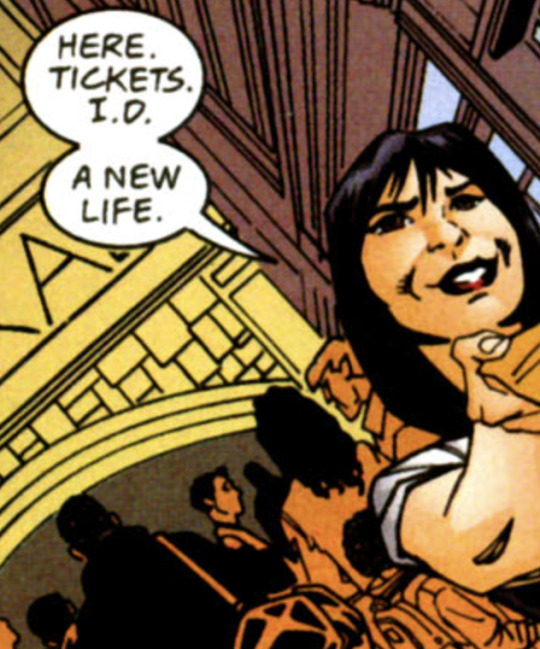

Pre-issue 4, Cass speaks minimally in one-word sentences and doesn't have internal narration. Post-issue 4 (when a metahuman changes Cass' brain), she develops an internal monologue and begins to speak longer sentences. I'm splitting Puckett's Cass dialogue into 3 stages: early, middle, and late.
Early (#4 - #12): Cass speaks short, fragmented sentences. Each word has an ellipses between them (panel 1 above, from #7).
Middle (#13 - #24): Cass continues to speak incomplete sentences (often missing a subject or pronouns), but without ellipses (panel 2, from #13).
Late (#25 onwards): Cass begins to speak complete, simple sentences, punctuated by a few ellipses (panel 3, from #33). She continues to speak grammatically (though slowly) throughout the final part of Puckett's run.
Dylan Horrocks - Batgirl (2000)


Horrocks writes very similarly to late-Puckett, with Cass speaking in full, simple sentences, punctuated by the occasional ellipses. Horrocks introduces two new elements to her dialogue:
Cass stutters, sometimes repeating a word or phrase at the beginning of a sentence (panel 1 above, from #39). This is mostly used in the earlier parts of Horrocks' run.
She quotes reality TV (panel 2, from #51).
Maybe because of the reality TV, Cass also speaks more colloquially here than in Puckett's run, using phrases like "come 'n' get it" (from #57).
Andersen Gabrych - Batgirl (2000)

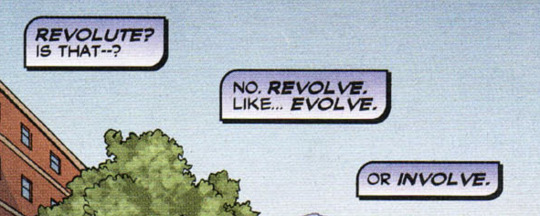
Gabrych's run focuses heavily on Cass' dialogue. Panel 1 above, from #58, suggests her narration boxes are another form of dialogue - Cass is speaking into a recorder. Several features of Gabrych's Cass dialogue are:
Ellipses: Even more than his predecessors, Gabrych scatters ellipses throughout Cass' speech (panel 1).
Fillers: Cass extensively uses filler words such as 'uh', 'um', and 'like' (panel 1, panel 2 from #61).
Longer sentences: Cass is more talkative and speaks longer sentences (panel 1, which is basically more words per panel than Puckett and Horrocks combined).
Wordplay: Cass often ponders definitions and word structures (panel 1, 2).
Adam Beechen - Batgirl (2008)
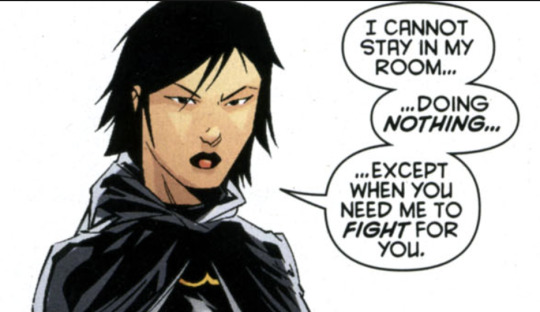

After evil Cass (that dialogue is not worth discussing), Beechen gets another chance with Cass in this miniseries. More than any other writer, Beechen differentiates Cass' internal monologue from her dialogue - her narration boxes are much wordier than her speech.
Her dialogue is a more loquacious version of late-Puckett or Horrocks: full sentences interspersed with ellipses (panel 1, from #1). The ellipses drop off towards the end of the series.
Her narration boxes use a variety of sentence structures and vocabulary. They read more or less as fluent English (panel 2, from #4).
Scott Snyder - Gates of Gotham (2011)
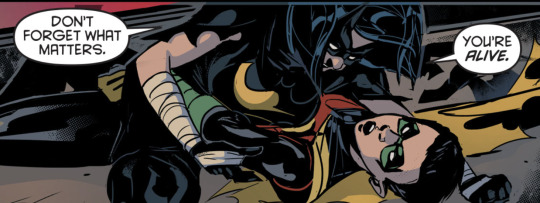

Snyder's Cass somewhat resembles mid-Puckett, using short sentences without ellipses (panel 1, from #2). She speaks a fair amount, but is more taciturn here than in any previous run. This is partially due to her not having narration boxes.
A unique feature of Snyder's Cass is preferring formal to informal speech. Though she uses contractions (panel 1), she goes large stretches without them (panel 2, from #3). She also omits the subject of a sentence only once in 5 issues, whereas native speakers (like Dick) drop the subject all the time ('have you ever been to Paris?' vs. 'ever been to Paris?'; Snyder's Cass would always say the former instead of the latter).
Sidenote: Batman & Robin: Eternal (2015)
Quick note about B&R:E: Cass is reintroduced into canon after being erased by the New 52, which means she's back to having very limited language ability. The series is scripted by multiple people, so it's hard to analyse. Suffice it to say she speaks in monosyllabic words, at most a short, incomplete sentence, but is mostly silent.
James Tynion IV - Detective Comics (2016)

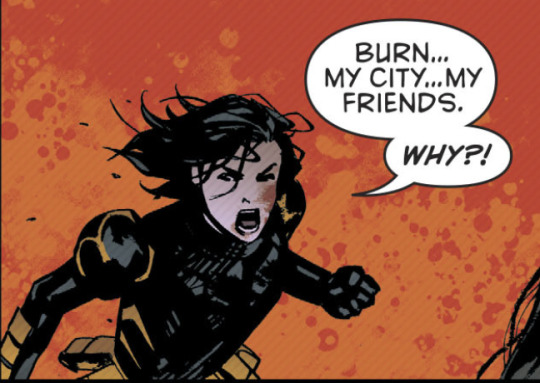
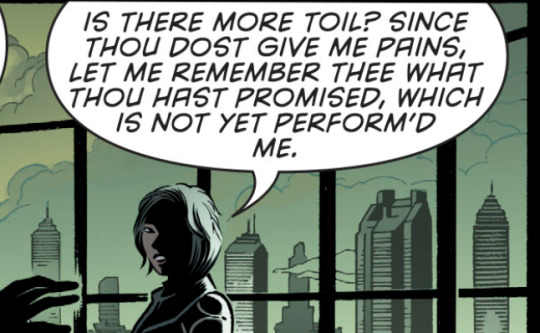
Because Cass' language ability has been reset, Tynion develops her speech along the lines of Batgirl (2000).
Early Tynion has Cass speaking single word sentences (panel 1, from #938). Very similar to pre-metahuman touch Cass in BG (2000).
During the League of Shadows arc, Cass begins to speak a few words at a time, often separated by an ellipsis (panel 2, from #956).
Afterwards, Cass' friendship with Basil Karlo blossoms, leading to this run's most distinctive language feature - Cass improves her speech via studying and quoting Shakespeare (panel 3, from #958). Her improvement is reflected in the rest of the run through speaking longer and more frequent sentences.
Bryan Hill - Batman & The Outsiders (2019)
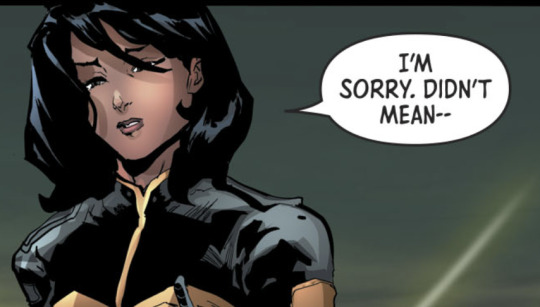
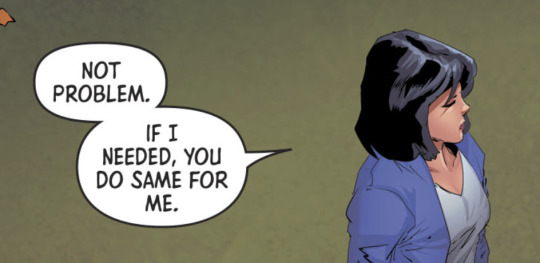

Like other writers, Hill's Cass generally uses short, simple sentences. She frequently drops the subject or pronoun in a sentence (panel 1, from #1). Hill doesn't use ellipses to separate the sentences, opting for periods most of the time.
Cass sometimes omits other words from her sentences too, dropping articles like 'a' and 'the' (panel 2, from #4), prepositions like 'to', and verbs like 'is' (panel 3, from #9). This peters out in the second half of the run.
Becky Cloonan and Michael W. Conrad - Batgirls (2022)

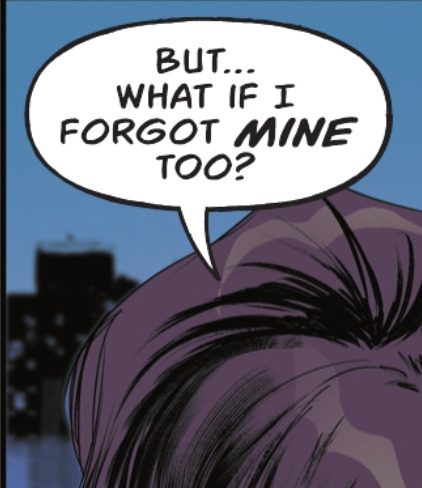
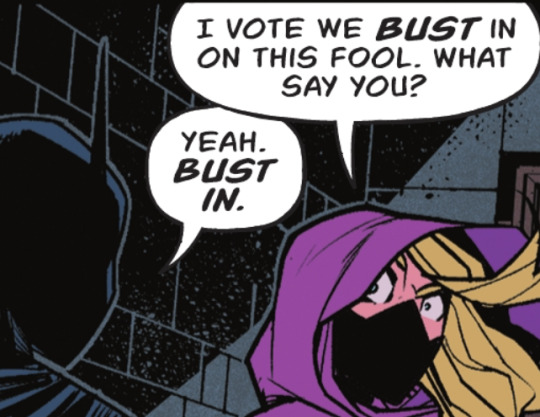
Similar to mid-Puckett, Batgirls has Cass speak mostly in short, 1-2 word sentences (panel 1, from #2). Cloonan and Conrad occasionally use ellipses as well, though mostly for emphasis/natural hesitation rather than indicating a unique speech pattern (panel 2, from #7).
Cass also has a habit of repeating/echoing a phrase Stephanie says (panel 3, from #16). This might be more of a friendship thing than a speech thing, though.
Alyssa Wong - Spirit World (2023)
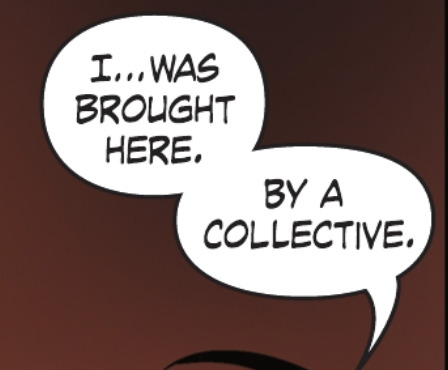

Wong's Cass uses short sentences sometimes interrupted by ellipses, like late-Puckett and Horrocks (panel 1, from #1). Generally, if the sentence is three words or less, there won't be an ellipsis (panel 2, from #5).
Kelly Thompson - Birds of Prey (2023)

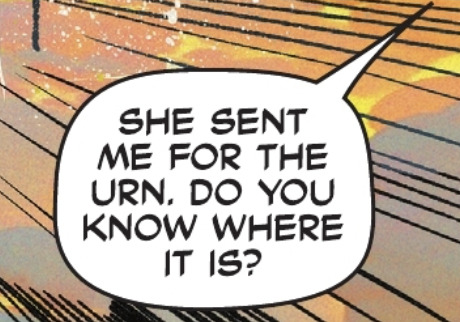
Thompson's Cass draws on a lot of previous iterations, but is somewhat unique as a whole. Some elements of BoP Cass include:
She speaks in sentences of varying lengths, but rarely with more than one clause (panel 1, from #1). Thompson is more strict about not using commas with Cass than most other writers.
Cass is a little more talkative (panel 2, from #5). Her sentences are fairly lengthy compared to most other runs, and she doesn't always opt for the shortest way to say things ('where is it?' instead of 'do you know where it is?'). Thompson also doesn't use ellipses, which adds to the sentences feeling longer/more complete.
BoP is ongoing so Thompson may add more to her speech.
Sidenote: Ram V - Detective Comics (2023)
Putting this in a sidenote since there's not much to say, but Ram V takes after mid-Puckett, with Cass using shorter, incomplete sentences. Cass almost always omits the subject of a sentence; her dialogue is as short as possible while retaining clarity.
Thoughts
Because Cass' language disability is a core part of her character, but learning to speak is also a core part of her character, I prefer writers who emphasize her unique speech patterns without reducing her range of expression. My favourites are:
Gabrych - by far the person who put the most effort into his dialogue, Gabrych-Cass has such a vibrant, distinctive style of speaking. The narration boxes, Cass' wordplay, and the use of fillers and ellipses all combine for a speech style that highlights her disability without reducing her to it.
Puckett/Horrocks - combining because they are really very similar. Puckett and Horrocks both use ellipses to great effect, and is a great style to emulate for Cass in an earlier stage of life. Horrocks' use of reality TV is severely underutilised. Puckett, of course, is the gold standard for typical Cass dialogue - if Gabrych's style is a little too much, Puckett and Horrocks are the way to go.
Tynion - mostly because of the Shakespeare thing. It's such a beautiful and clever way of showing her progress, and the amount of symbolism you could do with Cass quoting Shakespeare is unmatched.
I don't super enjoy the more talkative Casses (Beechen, Thompson to an extent), though I kind of like Snyder's take because there's a sense of Cass being very careful with her speech there. If you're writing Cass for a fanfic or something, I would avoid Hill's Outsiders; the run is great, but Cass' ungrammatical speech is unusual and doesn't jibe with the rest of her depictions. Ram V and Wong are relatively good depictions to draw from though.
Of course these are my opinions! I may have gotten some things wrong/overgeneralised stuff, so take all this with a grain of salt. All you need to know is you should read Batgirl (2000) :).
#cassandra cain#batgirl#batman#meta#this took me so stupidly long#i didn't even include batgirl (2024) since it's only one issue but I might add on later#anyway more people need to emulate gabrych#so many are clearly influenced by puckett but gabrych's dialogue is so unique to cass and works nicely with her development#i also wish more people would use the reality tv/shakespeare stuff#cass spouting off the crassest phrase and then 'dost thou' in the same sentence
499 notes
·
View notes
Text









David Tennant's absolute favorite place to film - as asked during his panel at FanExpo Boston, August 2022
[ Fan Expo Video Source ]
#david tennant#shakespeare's globe#globe theatre#fan expo boston#doctor who#good omens#st trinian's 2#(and he had a lovely wedding reception there too)#stuff i posted
463 notes
·
View notes
Text
The Kenneth Branagh Hamlet is worth it for Billy Crystal as the Gravedigger. He is STUNNING. he knocks it out of the PARK. He uses every single damn word of the original Shakespeare, including jokes around puns that don't exist in the language any more, and Crystal's comedic timing and screen presence is so good that it WORKS, and the scene is truly, legitimately, hilarious as well as being dark and nuanced and interesting. Branagh's eccentric casting doesn't... always work... but when it DOES oh boy does it.
no offense if people like the kenbran hamlet or anything else of course. i am so subjective i am SO biased i am always thinking about how i would play hamlet and i mercilessly judge every production that doesn't live up to my imaginary visions. i get specifically very annoyed when productions or individual actors lean into treating the play (and shakespeare in general) as Loftily Serious, because it is my personal onion that despite the early modern language hamlet plays very very well as an up-close-and-personal messier thing that's just some asshole Going Through It talking frantically at the audience. nobody ever leans hard enough into him being a weird and manic little freak actively falling apart. maxhamlet isn't monologuing grimly with great dignity he's like rolling on the floor and pulling out his hair and shit. i'd love to do 1.5 where after the ghost vanishes hamlet does some good old fashioned Just Wordless Screaming
212 notes
·
View notes
Text

of all the wonders that I yet have heard,
it seems to me most strange that men should fear,
seeing that death, a necessary end,
will come when it will come.
#its 4am and im assigning shakespeare quotes to acevi#this one in particular is from julius caesar act 2 scene 2#drdt#danganronpa despair time#drdt spoilers#tw blood#ace markey#levi fontana#acevi#ive reached my serious art quota from the year only silly stuff from now on
492 notes
·
View notes
Text





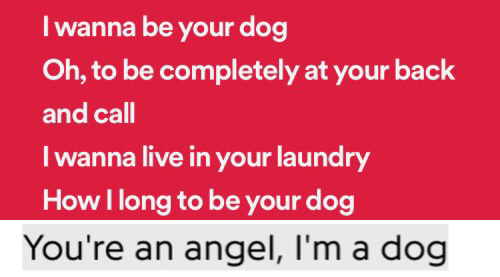
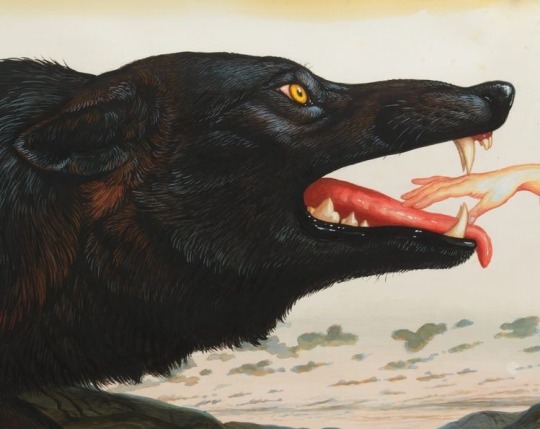



on reckless, self-destructive devotion and the sharp edges of longing that look almost like teeth
Phoebe Bridgers, “Moon Song” // unknown // Margaret Atwood, “Speeches for Dr. Frankenstein” // quadruple dog art by @mxmorggo on Instagram // Hozier, “Take Me to Church” // STELLAR, “Reflections” // AJJ, “I Wanna Be Your Dog 2” // Mitski, “I’m Your Man” // William Shakespeare, Midsummer’s Night Dream // Tumblr user @ojibwa // Trista Mateer, from “How I Asked You to Stay,” Honeybee.
#web weaving#poetry webbing#this is not to romanticize or endorse self-destructive devotion#I’ve just been in this kind of dynamic before and these quotes hit home for me#words words words#words n quotes#word webbing#quotes#trista mateer#Phoebe Bridgers#shakespeare#Shakespeare quotes#midsummer’s night dream#Margaret Atwood#on devotion#on self-destructive devotion#poetry#words and stuff#quotes and words#quotes and poetry#webbing#word weaving#word webs#the land is inhospitable and so are we#mitski#mitski lyrics#dog motif
3K notes
·
View notes
Text
One of my favorite things about classic literature is how I’m reminded that humans have always been this unhinged
#classic literature#Shakespeare#fyodor dostoevsky#the brothers karamazov#I’m currently reading brothers karamazov#I love classic literature#it’s so much better than the modern stuff
512 notes
·
View notes
Text
You can absolutely argue that Gertrude killed Ophelia if you want to. People love to talk about Gertrude's incredibly (suspiciously) detailed description of Ophelia's death. Which goes into a lot of detail about how Ophelia absolutely did not die immediately. According to Gertrude's testimony.
Ophelia was picking flowers for a flower crown (Gertrude lists the flowers, and additionally doesn't mention the "grosser name" that shepherds give the long purples/dead man's fingers. She's almost certainly eliding a name that evokes dicks, which could absolutely support some of the 'linking Ophelia and/or Gertrude to illicit sex' reads.)
Ophelia falls in the river.
Ophelia floats in the river "mermaid like" for a while, long enough to sing "snatches of old tunes."
Ophelia's clothes become muddy and waterlogged, and drag her beneath the water until she drowns.
So okay. If Gertrude was there, at the VERY least, she could have probably saved Ophelia, and didn't.
This is the literary criticism hill I have chosen to die on.
There has been a half-complete version of post on my Dreamwidth journal under a “Private” filter (my eyes only) here since 9 December, 2018, just waiting for me to get the energy and mental focus to write an essay outlining all the textual evidence in Act 4, scene 1 (Ophelia’s “madness” scene). But at this point, I don’t think the required energy for that will ever come – at least, not for the long essay format. So I’m just going to post my conspiracy theory Thesis Statement here:
Ophelia did not commit suicide – she was murdered. By Queen Gertrude (probably).
And I can’t help but wonder how this play would be taught and performed if this interpretation were the standard one Here’s a bit of a presentation by Shakespearean actor and scholar, Ben Crystal, on his interpretation of the “To be, or not to be?” soliloquy, and how he no longer thinks Hamlet was suicidal at that point in the play, either (though he was, earlier on): Ben Crystal talks about Original Pronunciation, 20 July 2017 (it’s at a point about 40 minutes in to the whole thing). So what if suicide is not a recurring theme of the play? How does that change things?
9K notes
·
View notes
Text

479 notes
·
View notes
